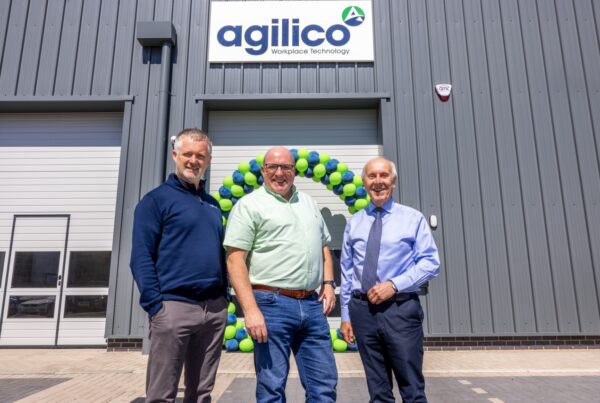As businesses strive to integrate more flexibility and resilience into their operations, it is important to remember the cultural component of making agility really work for business.
The success of an agile workplace centres on a number of key ingredients which, together, provide the right conditions and environment for agility to thrive. These also highlight how and why workplace culture is integral to the successful roll-out of and sustained commitment to agility. These ingredients are the absence of formal hierarchy, trust and empowerment, flexibility, team-work, speed and workplace tools.
Perhaps the most important of these is trust. Over the last decade, many organisations have replaced the traditional hierarchy with more open and flat structures. Here, managers have been replaced with leaders and the focus has shifted to outcomes rather than outputs. These leaders put trust in their employees – as long as the work is done, the what, when, where and how, within reason, becomes less important.
This ability to choose has given rise to a generation of autonomous workers and has created a team structure that is often less rigid, which makes for more innovative, flexible, collaborative and often team-orientated ways of working. The move to agility is a natural extension of this and trust can already be seen in the throng of businesses that now support flexible working – where empowered employees choose their working hours, work settings and locations. 
Organisational speed comes from people working together to solve problems from different angles and in their own working styles. Replacing procedure and the limitations it can present with more free-thinking helps to provide the dynamism that makes agile businesses able to respond to shifting priorities with ease. They are change ready.
The final part of the picture is workplace tools. Employees must have the right tools and training to support agility. This includes collaboration technologies that enable easy team working with colleagues regardless of location, workplace protocols that support 24/7 access to business assets, and practices that improve document processing efficiency, security and compliance, such as smart managed print and document management systems.
Each of these ingredients is necessary for agility to thrive and each relies on workplace culture – the component that research partner McKinsey highlights as one of the biggest challenges of agile transformation.
Workplace culture represents the personality and character of an organisation and has the power to either undermine or strengthen an organisation’s objectives. It is the glue that binds all of the ingredients for agility together into a cohesive set of values, traditions, beliefs, interactions, behaviours and attitudes. Culture powers agility – it provides its structure, purpose and meaning, and provides the framework in which it can operate.
Agile businesses have corporate cultures that are characterised by their agile processes. These businesses build flexibility into their corporate DNA by combining innovation, collaborative working, flexible working protocols and agile technology into everyday practices. In addition, their leaders and managers act as role models and champions of agile change and provide the support, guidance and training needed to make agile behaviour central to operations. These businesses are also open and supportive, friendly and collaborative, flexible and mobile, fast and efficient, innovative and change-hungry, well-equipped and well trained, liberated and enabled in equal measure.
The whole essence of agile working is about finding the best way to solve problems rather than being bound by procedure, hierarchy and tradition. The world of business is becoming increasingly complex and unpredictable too. Businesses that choose to stick to traditional operating models will quickly find themselves unable to compete. It is organisations that are change-ready in terms of their processes, practices, technology and people that thrive and it’s why culture is such an important part of the picture.
Understanding, investing in and nurturing workplace culture creates the agile behaviours, values and skills that support continued change and underpin highly successful agile organisations.
Get in touch to discover how Agilico can support you on your agile journey.



